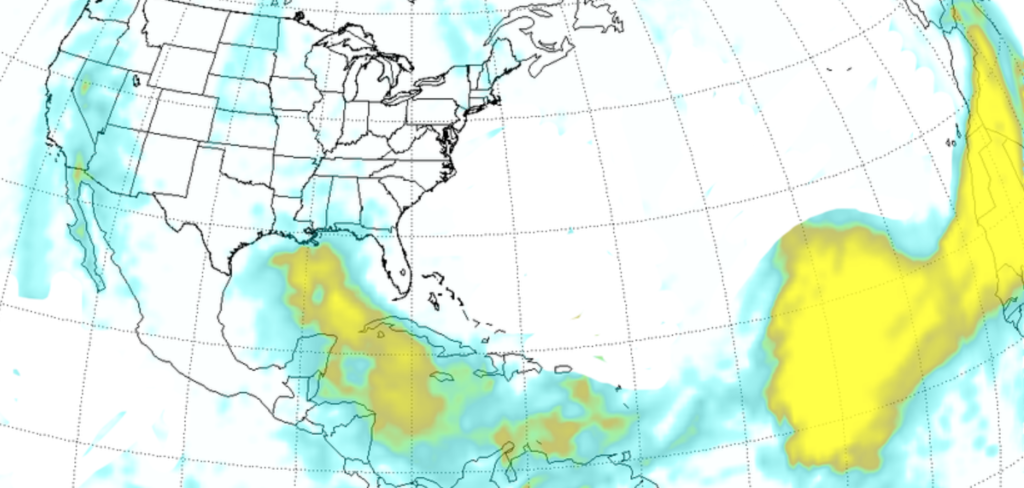Dust from Sahara could pose a health threat through weekend

This June 24, 2020 image is from the Suomi NPP OMPS aerosol index. The dust plume moved over the Yucatan Peninsula and up through the Gulf of Mexico. The largest and thickest part of the plume is visible over the eastern and central Atlantic. (NASA/NOAA map)
—–
Dust from the Sahara Desert has made sunsets west of Louisville spectacular in the last few days, but we’re about to get too much of a good thing.
Gov. Andy Beshear said in the release, “We absolutely need to be cautious this weekend and next week, monitor the air quality index in our area, and if needed, limit our time outside. We’ve already shown that we can come together to fight a global pandemic for months, so I know we can take the steps needed to protect ourselves and our loved ones over one week.”
Saharan dust “is an annual phenomenon in the late spring, summer and early fall,” the release said, but this one “is unusually large. It is one of the thickest on record and nearly 5,000 miles long. That means it could have a significant negative impact on air quality when it moves over Kentucky. Poor air quality can aggravate those suffering from respiratory conditions such as asthma and COPD. It can also pose health risks for seniors and young children.”
Stack said, “Fortunately, unlike covid-19, this is a short-term issue, and the masks most Kentuckians are already wearing will also help protect them from inhaling dust. But this is still a serious risk for our youngest and oldest residents, as well as those with any respiratory issues. We need to be especially careful this weekend about spending extended time outdoors. Kentuckians should consistently check the air quality in their ZIP code at airnow.gov and watch for any changes in the sky’s color and visibility.”
The dust may irritate the eyes, lungs and throat and inhibit breathing. The state offered these tips for protection:
- Pay attention to local air quality reports at https://www.airnow.gov/ and watch for news or health warnings about dust particles in your area. Pay attention to public health messages and take extra safety measures such as avoiding spending time outdoors.
- Continue to wear the protective mask you are using to help prevent the spread of covid-19. The mask will also help prevent exposure to dust particles if worn correctly.
- Keep windows and doors closed unless it is very hot outside. Run an air conditioner if you have one, but keep the fresh-air intake closed and the filter clean to prevent dust from getting inside. Seek shelter elsewhere if you do not have an air conditioner and it is too warm to stay inside with the windows closed.
- Follow your doctor’s advice about medicines and about your respiratory management plan if you have asthma or another lung disease. Call your doctor if your symptoms worsen.
The release said the state will “monitor the Saharan dust plume and if required, disseminate additional public health advisories and guidance to protect our fellow Kentuckians.”